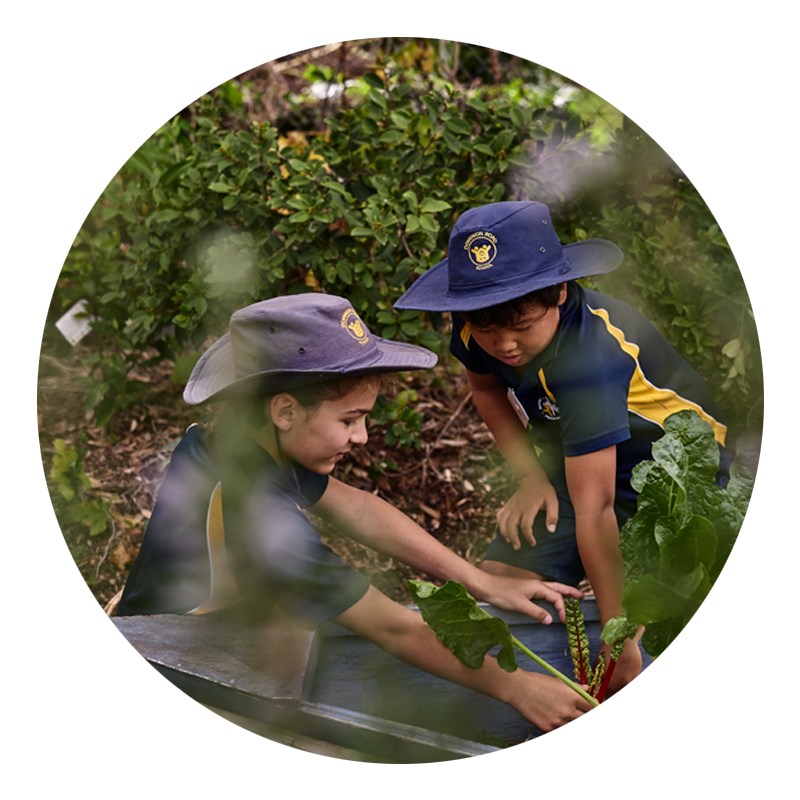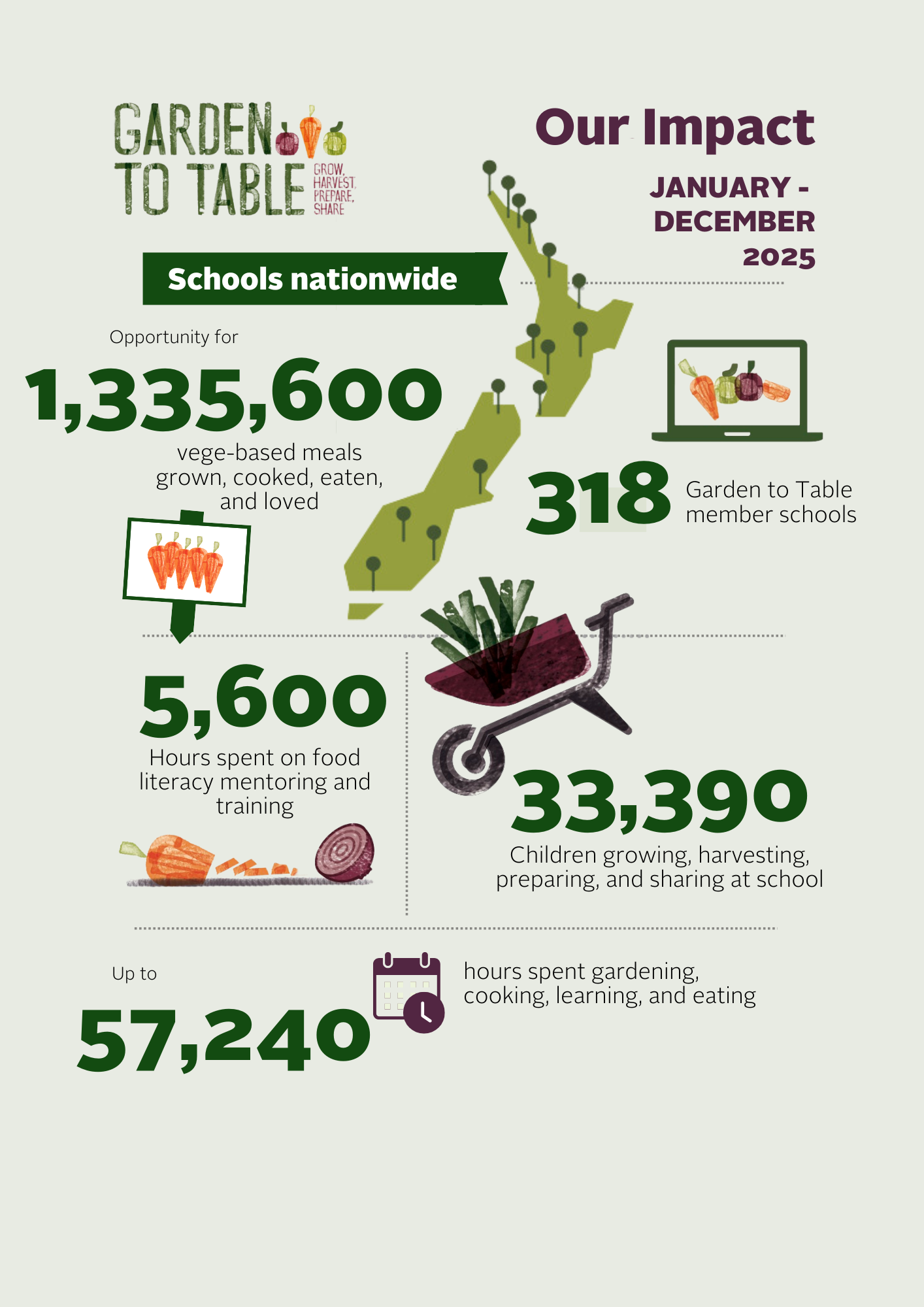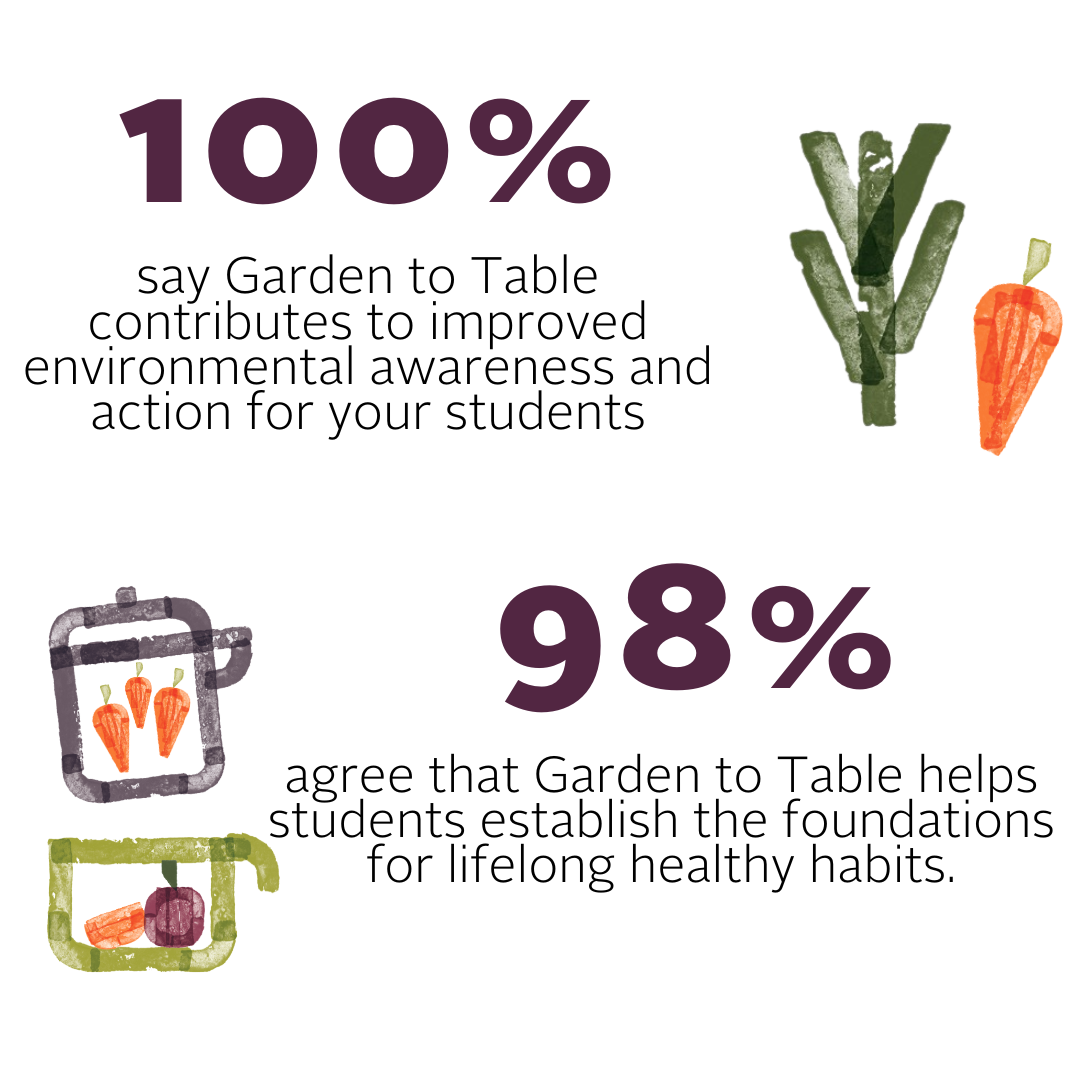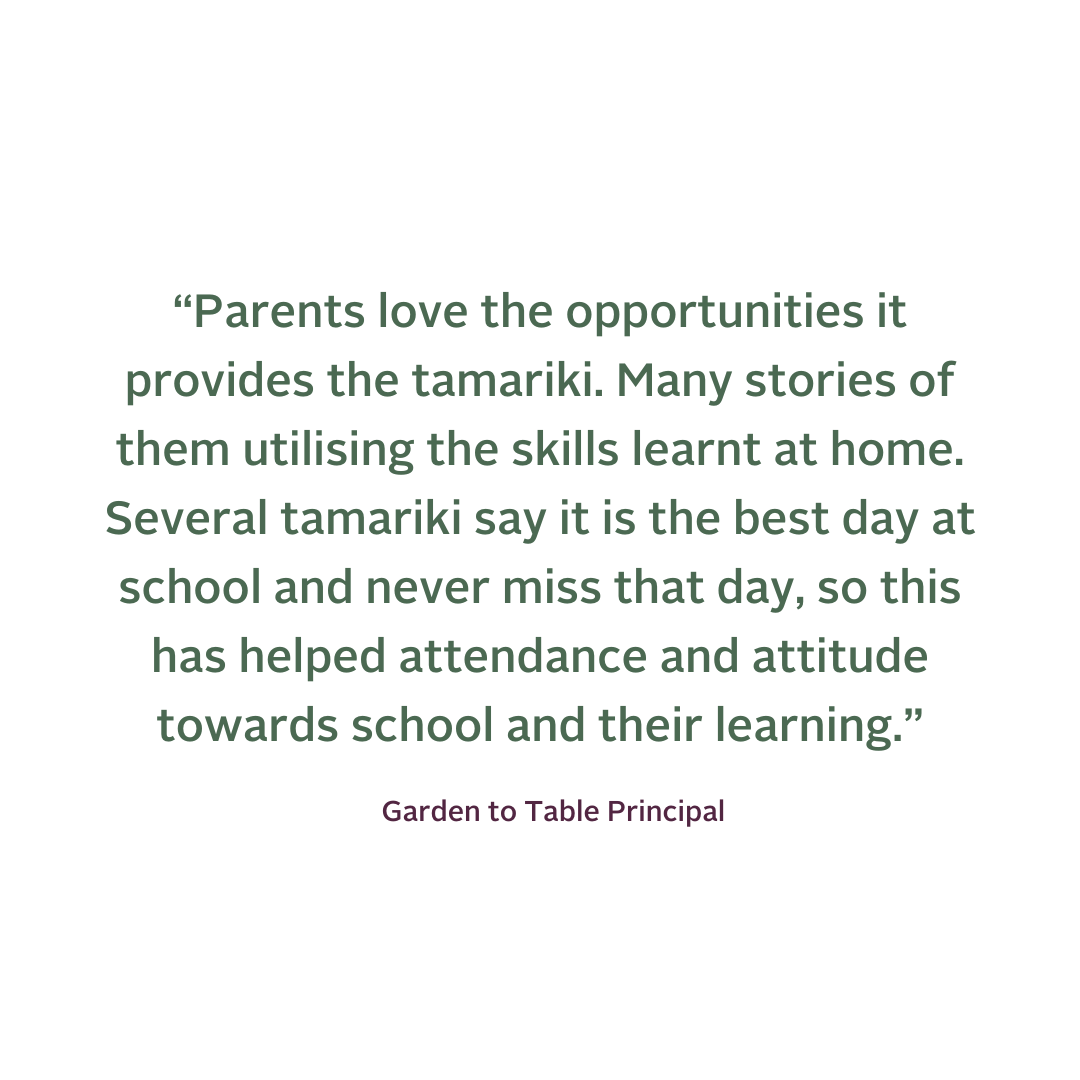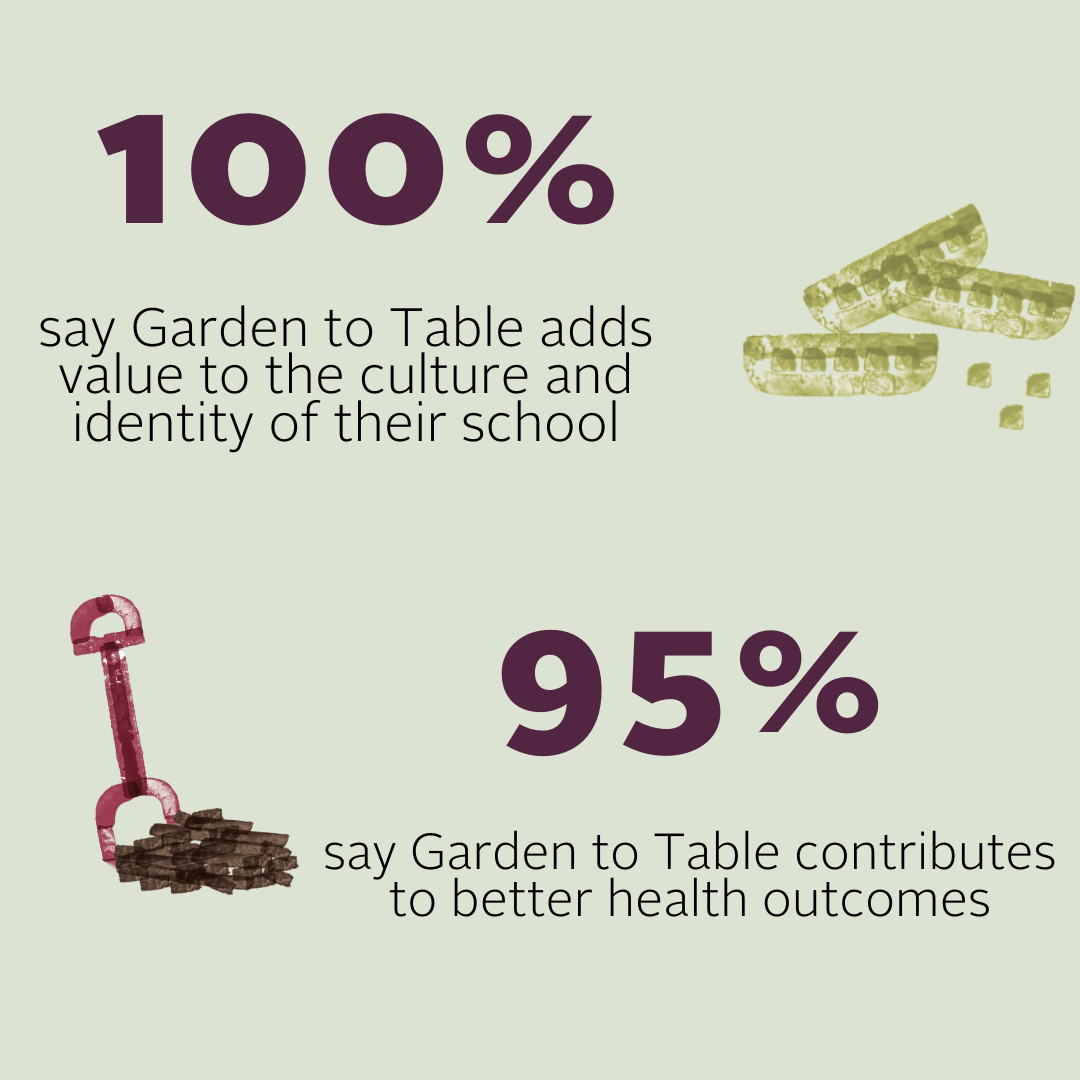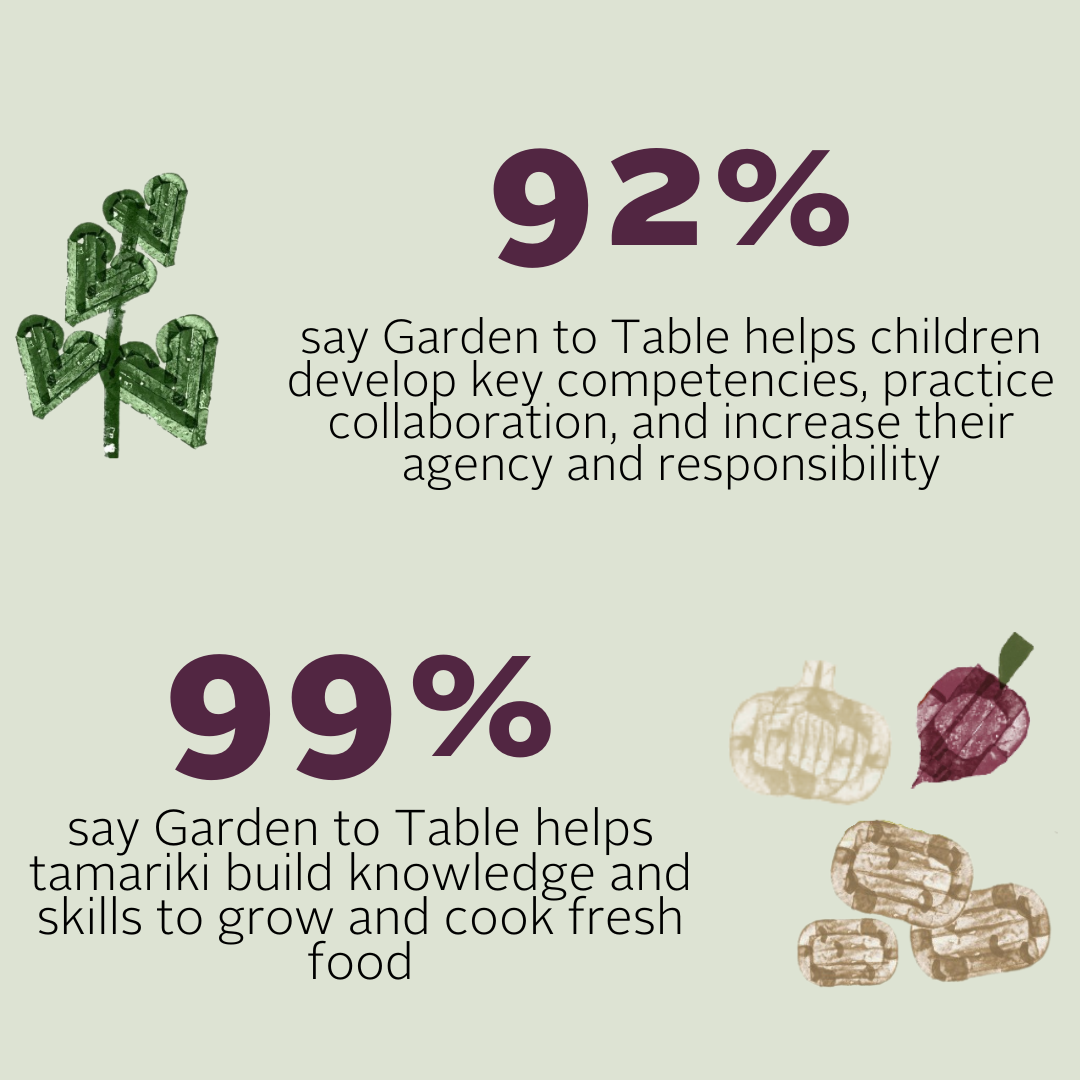
Our impact
More than 33,000 primary and intermediate students grew, cooked, and ate more than 1,300,000 vegetable-based meals through Garden to Table in 2025.
Every week or fortnight, classes take part in gardening and cooking sessions and then sit down together, with volunteers from their whānau and the local community, to enjoy the food they have prepared. That's more than 57,000 hours of gardening, cooking and sharing meals every year! All this real-world learning is designed to be easily linked back to the school curriculum.
From the far North to Southland, Garden to Table regional coordinators delivered over 5,000 hours of training to educators in 2025 empowering them to deliver their curriculum-linked Garden to Table programme.
The movement is growing, with more schools joining each term.
Here’s what principals at Garden to Table Schools told us about the programme’s positive impacts in 2025:
What have researchers discovered about the impact of Garden to Table and similar programmes?
Research commissioned by the Healthy Futures Charitable Trust to investigate the impact of the Garden to Table programme in schools in Porirua found:
Children enjoy the Garden to Table programme
Teachers and Support staff find the programme has positive effects on children and can be integrated into the school curriculum
Children were able to name vegetables they could not previously and had tried vegetables they had not previously
Children were more willing to try new foods
Children increased their consumption of fruit and vegetables as both self-reported and by a parent/guardian.
Read more from the Centre for Endocrine Diabetes and Obesity Research (CEDOR) at Capital and Coast DHB (2019).
Garden to Table was identified as one of the top 5 food policies for a healthier New Zealand by The Healthier Lives - He Oranga Hauora National Science Challenge.
This project aimed to identify: an optimal diet that meets the nutritional needs of Aotearoa New Zealand’s population while reducing greenhouse gas emissions, at minimal additional cost to individuals; and a version of this diet that is more culturally acceptable to Māori. It also sought to identify a range of feasible and acceptable policies to help New Zealanders move towards these theoretical diets.
A study involving Auckland schools new to the Garden to Table programme evaluated its impact on food literacy in children aged 9–11 years. Over 200 children participated, with 114 providing matched before-and-after survey responses. Children completed an online food literacy survey at two times, before the Garden-to-Table programme was implemented in their school in March-May 2022, and after the Garden-to-Table sessions finished for the year, in November 2022.
The survey measured food origins, nutrition knowledge, and food skills, with scores improving by 3–4% across all areas. There was a statistically significant improvement in the overall food literacy score. This study has shown that the Garden-to-Table programme improves children's knowledge of how food is grown and processed (food origins), their understanding of food and nutrition guidance (nutrition knowledge), and general food skills.
The study was conducted in collaboration with the University of Otago’s Department of Human Nutrition, who designed and validated the food literacy survey and analysed the data.
In 2011, SHORE and Whariki Research Centre at Massey University investigated the impact of the Garden to Table programme on food literacy. The evaluation, published in 2013, concludes:
"There is evidence of successful achievement of the following outcomes. Children have developed knowledge and skills in gardening and cooking. They have developed food literacy which was obvious through their recall of a wide variety of fruit and vegetables, their preparation of food and links to the curriculum. They are willing to taste new foods and the kitchens are bustling places where children are all working cooperatively together to prepare food. Forming new friendships and bonding with each other also occurred as a result of children’s participation in the programme."
Garden to Table was inspired by Stephanie Alexander’s Kitchen Garden Program in Australia. This 2019 research by the University of Melbourne investigated primary school children’s knowledge, attitudes and behaviours related to food when participants in the programme became independent young adults.
An original evaluation of Stephanie Alexander’s programme was completed in Victoria in 2009 and the students involved in those first program schools were studied a decade later at 18‐23 years. This provided a unique opportunity to examine the impacts of the program and to contribute new evidence internationally to understanding of the long‐term influence of kitchen garden programs.
Read more from the study by the Centre for Health Equity, Melbourne School of Population and Global Health
